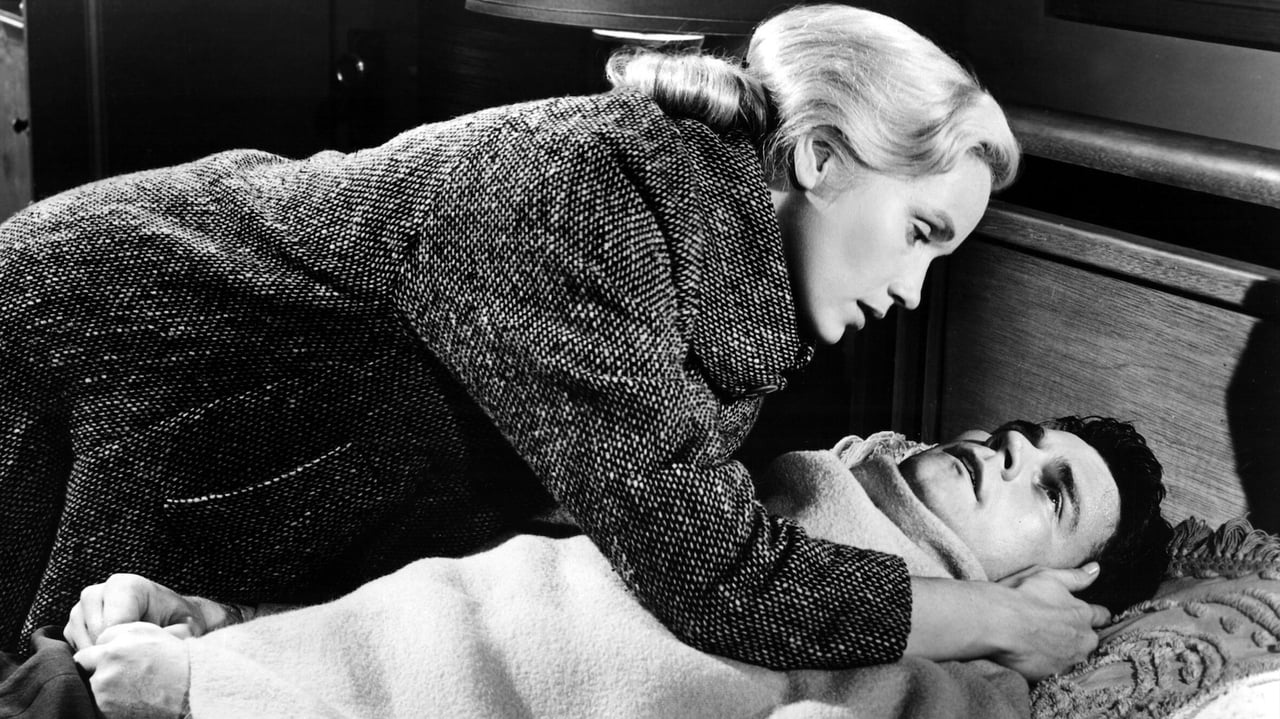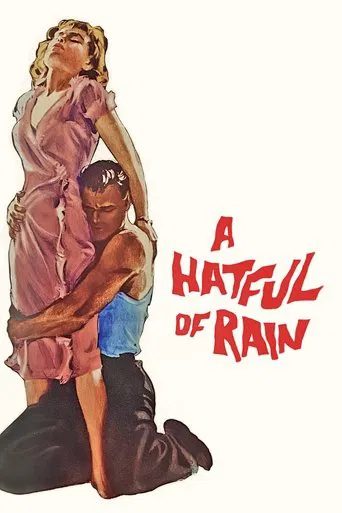

A Hatful of Rain has a strong acting and a great script. The film's biggest asset, however, is its maturity. Make no mistake, this is a serious movie and not just because it is about addiction. If you are familiar with other Zinnemann films, you have already been exposed to the unflinching psychological realism that defines his work. Zinnemann's films are honest. Where some directors would cut away from a difficult scene, Zinnemann zooms in. This may be one of the least escapist films you could find, not because it is a tragedy, but because it is a reality. There is some truth to the complaints about this film's staginess, but overall it delivers as as a great late '60s serious film.
... View MoreCopyright 1957 by 20th Century-Fox Film Corp. New York opening at the Victoria: 17 July 1957. U.S. release: 14 June 1957. U.K. release: 17 November 1957. Australian release: 12 September 1957. Sydney opening at the Esquire. 9,572 feet or 106 minutes in the U.K. 109 minutes in the U.S. and Australia.SYNOPSIS: Don Murray plays the "junkie" who is very much in love with his pregnant wife, Miss Saint. But always there are the savage demands of his addiction which turn him into a creature at once pathetic and hateful. Living in the same apartment with husband and wife is Franciosa, brother and protector of Murray. To appease his brother's sick thirst for the drug Franciosa has provided money and made sacrifices. Finally Franciosa has no more money to give and the growing plight explodes over Murray's head. His wife, thinking his furtive disappearances signify another woman, plans to leave him. In addition, a trio of creeps, superbly characterized by Henry Silva, Gerald O'Loughlin and William Hickey, close in sadistically on Murray for payment of the drugs. NOTES: Tony Franciosa was nominated for an Academy Award for Best Actor, losing to Alec Guinness in The Bridge on the River Kwai. The stage play by Michael Vincente Gazzo opened on Broadway at the Lyceum on 9 November 1955, running (at least to my mind) an amazingly successful 398 performances. Franciosa was the star, but Ben Gazzara played the junkie, Shelley Winters the wife and Frank Silvera the thick-headed father. Henry Silva was "Mother", his associates Harry Guardino (in his Broadway debut) and Paul Richards. Because of other commitments (no-one had expected the play would run so long), Ben Gazzara was forced to leave during the run, being replaced by Steve McQueen (also making his Broadway debut). The play was such a huge success, Fox had to fork out $250,000 just to buy the screen rights.comment: When this film was made, the subject of dope addiction had just been removed from the banned list on the Production code; and it was considered very daring and controversial and very up-to-date to make such a film — especially when the film was backed by the prestige and production team of a major studio. Of course, the subject had to be treated in "good taste" — a dictum that has certainly put the damper on any imaginative, courageous, controversial or really insightful handling here. In fact Zinnemann seems to have stepped as far back as the Pyramids to avoid giving the slightest offence or affront to anyone. Except for one solitary shot — Murray's tortured face seen through the slatted shadows of a venetian blind — the direction is stolidly unobtrusive. The players are often lined up across the screen as they would be on the stage. All our attention is firmly focused solely on the players and their dialogue. Fortunately, a lot of the acting can stand up to this sort of scrutiny (although Franciosa tends to over-act) and the dialogue has enough zing to keep the viewer reasonably engrossed. Some attempts have been made to open out the playscript, but the bulk of the action still takes place in the cramped quarters of the original stage setting.
... View MoreI saw this play-turned-film many years ago on late-night TV and have been wanting a copy for my collection. I miss that late-night discovery of motion picture history from my bed that I received back in my high-school days, when I'd watch whatever was on because they seemed to care to show good stuff on my local station and there was always something I'd never seen. I'd remembered Eva Marie Saint from "On The Waterfront", but she just blew me away in this film. And Tony Franciosa I new from TV. Was it "The Name of the Game"? Anyway, he was great in this film, as he was in "A Face in the Crowd". I wish more people remembered him. Don Murray was also very good. These were all actors hard at work with a great script. It has one of the most moving endings I've ever seen. Where's my DVD?
... View MoreGood drama showing how a family can be far different than what it appears when certain members refuse to live in the present. Nolan was good as the bantam rooster of a father and Franciosa shone as the drunken yet solid older brother. As always Silva, with that cruel face, was well cast as a heartless pusher whose love for money can only lead to disaster. I wanted to slap his hyper little helper; what a creep.
... View More